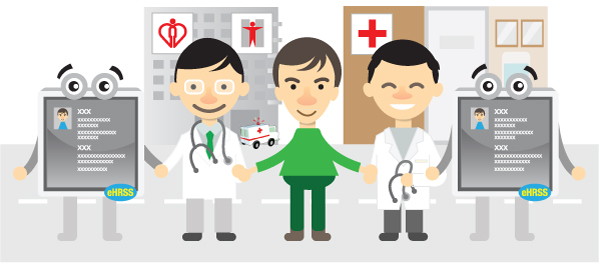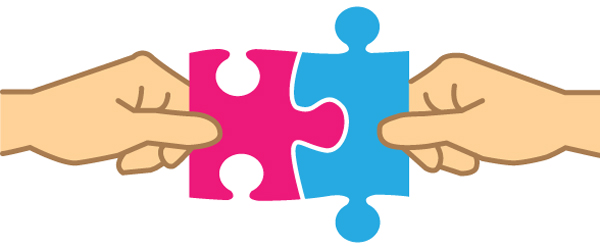 |
|
“The Electronic Health Record Sharing System (eHRSS) can facilitate collaboration and partnership
between the private and public healthcare sectors, thereby creating a win-win situation for both.” |
Mr Alex Lan,
President and Chief Executive Officer (CEO)
of Hong Kong Adventist Hospital (HKAH)
- Stubbs Road and Tsuen Wan
|
|
|
| |
| “We used to obtain patient information of the Hospital Authority (HA) under the Public-Private Interface–Electronic Patient Record Sharing Pilot Project. With the launch of eHRSS, private hospitals like us can now play a role in contributing data through the system,” said Mr Lan. |
| |
| “This is of great help to patients, especially those who frequently use both the public and the private healthcare services,” he said, commenting that for private healthcare providers (HCPs), eHRSS participation can be an incentive for patient patronage. |
| |
 |
| This is of great help to patients, especially those who frequently use both the public and the private healthcare services |
|
| |
| “With eHRSS, different HCPs can get more comprehensive patient information to facilitate the provision of more directed and pertinent treatment, while patients can avoid repeated tests and examinations,” he said. |
| |
| Taking the example of Hong Kong Adventist Hospital – Tsuen Wan, Mr Lan said some 4,000 of their patients have already registered with eHRSS, adding that he foresees that more patients will join the system in the near future. |
| |
| “For milder diseases like cold or flu, patients often visit private general practitioners or their family doctors. For more serious ones, they tend to come to us. If subsequently costly health procedures and treatment are required, many will choose to go to public hospitals,” he said. |
| |
| “Cancer patients, for instance, will go to private hospitals for surgeries as the waiting time in private hospitals is comparatively shorter. After that, they will go to public hospitals for chemotherapy, radiation therapy and other long-term treatment,” said Mr Lan. |
| |
| By sharing data through eHRSS, both public and private HCPs can view patients’ medical history, and surgeries and laboratory tests performed on them, he added. |
| |
| Collaboration between Public and Private Sectors |
| |
| In Hong Kong, public hospitals are looking after the majority of the patients, and the demand for their services is huge. Mr Lan believes that eHRSS can help enhance collaboration between the public and private healthcare sectors, particularly through Public-Private Partnership (PPP) Programmes launched by HA. |
| |
| “PPP Programmes, by engaging private hospitals and HCPs and using eHRSS as a two-way communication platform, can help alleviate the pressure on public hospitals, while enabling the former to better utilise their resources,” he said. |
| |
| Mr Lan explained, “Some private HCPs join these PPP Programmes as a service to the community on a cost recovery basis if they have spare capacities. eHRSS plays an important part in these programmes as the patients’ information will then be easily shared with HA,” he said. |
| |
| Mr Lan said the two HKAHs have also participated in the Project on Enhancing Radiological Investigation Services through Collaboration with the Private Sector, the Cataract Surgeries Programme and the Colon Assessment PPP Programme of HA. |
| |
 |
| eHRSS can help enhance collaboration between the public and private healthcare sectors |
|
|
| |
| HKAH’s eHR Experience |
| |
| For years, HKAHs have been proactive in adopting digitisation and e-sharing of patient records. “Our digitisation started with administration and finance. We went a step further and used the IT systems for clinical tasks, including patient master index, statistics, drug dispensary and laboratory tests,” said Mr Lan. |
| |
| “Adopting eHR is efficient as our doctors and nurses can immediately view the records and take necessary actions. Error can also be avoided,” he said. |
| |
| Having joined eHRSS, the two hospitals have already adopted some of the eHR modules, covering adverse drug reaction, allergy, birth record, dispensing record and radiology examination. |
| |
| Mr Lan admitted that computerisation of clinical tasks is a long process. “We have been encouraging our colleagues to use computer systems. Young doctors are familiar with using computers, but it is inevitable that some senior doctors still prefer hand-writing patient records,” he said. |
| |
| “Also, some visiting doctors are serving several private hospitals that have clinical systems of their own. The doctors need to take some time to adapt to different systems,” Mr Lan added. |
| |
| However, Mr Lan was hopeful that these problems can be overcome. “As a start, we plan to provide doctors with handwriting pads so that their hand-written records can be easily captured and recorded in computers,” he said. |
| |
| At the same time, he believes it is worthwhile for private hospitals to explore the possibility of using the same clinical modules to facilitate visiting doctors to input patient records. |
| |
 |
| |
| Challenges with eHR Sharing |
| |
| Mr Lan understood that some private HCPs still have reservation in using eHRSS. “Their hesitation is understandable, as they worry that their diagnoses and clinical judgment will be open for scrutiny,” he said. He believes as the first step, efforts should be put to encouraging them to join eHRSS. |
| |
| “The system only requires them to input and share some but not all clinical data. We should encourage them to join the system and let them see the benefits for both patients and themselves. Little by little, they will learn the skill, overcome the worry, and use the system with ease,” he said. |
| |
| “That is what we do in HKAHs, slowly and progressively encouraging colleagues to use computer systems, and we see that our efforts are gradually bearing fruit,” he added. |
| |
 |
| Efforts should be put to encouraging HCPs to join eHRSS |
|
| |






